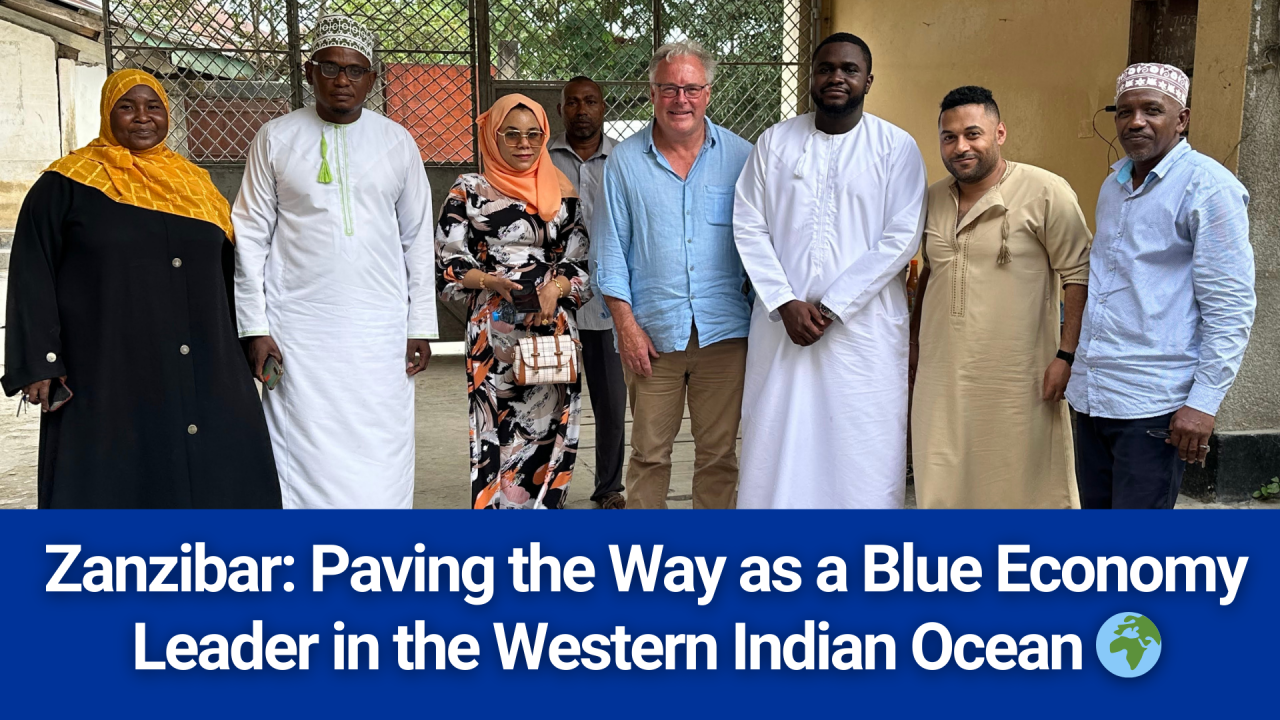Introduction
Zanzibar, a picturesque archipelago in the Western Indian Ocean, is keen to become a leader in the Blue Economy. In line with this vision, and under the aquaculture pillar of the Blue Economy framework, Ethical Seafood Research was retained by the Ministry of Blue Economy and Fisheries to develop a sustainable and ethical aquaculture strategy in close consultation with local stakeholders.
Our Role in Zanzibar’s Aquaculture Development
ESR’s team, along with experts from Poseidon Aquatic Resource Management Ltd, the Ministry of Blue Economy and Fisheries, and the Zanzibar Fisheries and Marine Resources Research Institute, recently completed a comprehensive stakeholder consultation exercise. This 10-day trip across Unguja and Pemba islands involved engaging with various public and private sector entities, including government ministries, research institutions, and farmers.
Key Findings and Recommendations
Our initial goal was to capture the current state of Zanzibar’s aquaculture sector, highlighting both its strengths and challenges. Key findings include:
- Seaweed: This historically significant cash crop faces challenges due to climate change, market factors, and poor genetic strains. Specific challenges include increasing sea temperatures, higher rainfall that inhibits growth and encourages disease, poor genetic strains, high transportation costs, and poor working conditions.
- Sea cucumber: A growing and high-value opportunity with potential to be a sustainably developed subsector. However, the operation is currently facing issues such as theft and environmentally unfriendly farming practices. Responsible farming practices must be promoted as well as the prevention of illegal harvesting, and the development of effective monitoring and enforcement mechanisms.
- Finfish (tilapia, milkfish, etc.): A relatively small sector with potential for expansion, but hindered by challenges in hatchery development, feed production, and market access. Developing hatcheries that produce high-quality, affordable juveniles at scale is essential for the growth of the finfish sector. Producing affordable, well-performing feeds made from local ingredients and raw materials can help reduce costs and improve sustainability.
- Governance and public sector support: The need for improved regulations, research, and financing mechanisms to support sustainable aquaculture development. Promoting online registration for fisheries and aquaculture, developing a long-term research plan, integrating aquaculture into marine spatial planning, and introducing new blue finance models are key recommendations for enhancing governance and public sector support.
Based on these discussions and findings, we are recommending a strategic approach to aquaculture development that focuses on:
Sustainable practices:
- Adopting eco-friendly farming methods for seaweed and sea cucumber, such as the use of organic materials and minimising plastic waste and other pollution.
- Protecting sensitive habitats and biodiversity.
- Promoting responsible aquaculture practices such as high animal welfare in the case of finfish.
Value addition:
- Developing new value-added products, such as seaweed-based bioplastics, pharmaceutical products, or food additives.
- Improving processing techniques to enhance product quality and value.
- Exploring opportunities for export markets and niche markets.
Research and innovation:
- Investing in research to develop climate-resilient varieties, improve feed efficiency, and explore new farming methods.
- Supporting research on sustainable aquaculture practices and technologies.
- Collaborating with academic institutions and research organisations to foster innovation.
Governance and policy:
- Developing clear and transparent regulations that promote sustainable aquaculture practices.
- Providing technical assistance and training to farmers and entrepreneurs.
- Establishing effective monitoring and enforcement mechanisms to ensure compliance with regulations.
- Promoting good governance and transparency in decision-making.
- Supporting the development of a conducive business environment for aquaculture.
- Exploring innovative financing models to support aquaculture development, such as blue finance and public-private partnerships.
Next Steps
The insights gained from this initial consultation will inform the development of a comprehensive aquaculture strategy for Zanzibar from 2025-2038 which we will be formulating between now and the end of February. We’ll share more details about this strategy in the coming months.

